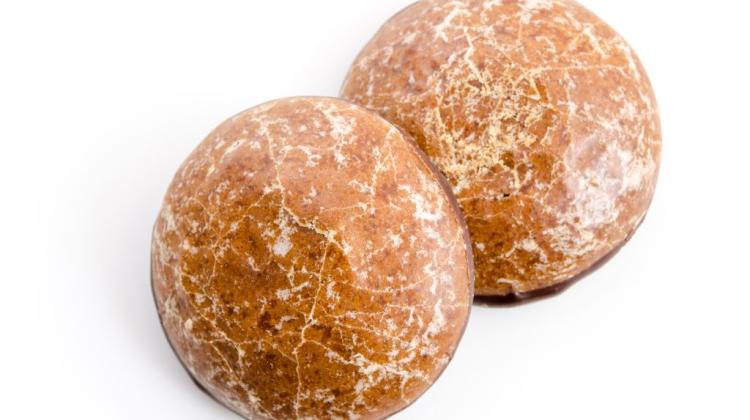Scientists working on recipes for gingerbread with polyphenols
 Photo: Fotolia / Wolfgang Mücke
Photo: Fotolia / Wolfgang Mücke
Scientists from Olsztyn bake gingerbread with pro-health properties. The cakes are being developed to support healthy eating of children and young people, as an alternative to the so-called "junk food".
In Olsztyn Institute of Animal Reproduction and Food Research of the Polish Academy of Sciences, PhD student, Małgorzata Przygodzka investigates pro-health properties of baked goods. She develops recipes for gingerbread enriched in polyphenols.
Małgorzata Przygodzka explained that polyphenols naturally occurring in buckwheat, which is one of the ingredients of gingerbread, play a very important role. They have antioxidant properties; prevent heart disease and diseases of the circulatory system, they are important in the prevention of atherosclerosis, and they slow down the aging of the body, including the skin. They also prevent the so-called oxidative stress. It is a state of disrupted homeostasis, which is dominated by free-radical reactions, induced by the excess reactive oxygen species to the detriment of antioxidant processes. Oxidative stress may lead to many diseases, including cancer.
Olsztyn scientists hope to enriched natural polyphenols found in buckwheat flour used for making gingerbread with polyphenols obtained from other natural sources. The PhD student is also working on gingerbread with spices that have health promoting properties. Cakes with such spices will also taste and smell better.
Gingerbread with polyphenols are intended to replace dietary supplements and become a diet component.
"The idea is that instead of consuming available today dietary supplements and numerous pharmaceutical products available without a prescription, which contain synthetic polyphenols, young people switch to gingerbread enriched in polyphenols derived from natural sources. Ultimately, we want a 50 gram package of gingerbread to replace pharmaceutical preparations now available on the market" - emphasised Małgorzata Przygodzka.
Gingerbread recipes are developed somewhat in response to a ban on so-called "junk food", which will come into force in Polish schools in September 2015. "We want to offer young people these health-promoting cakes instead of chips, candy bars or sticks purchased in the school shops or vending machines. Products we propose are among the functional foods" - said Małgorzata Przygodzka.
Scientists do not reveal the recipes or names of spices, because after the development of recipes they want to patent them. They have already established cooperation with a bakery so that their health-promoting product could reach the consumers.
Accoring to Małgorzata Przygodzka, the development of recipes of such products is a nice job.
"At the Institute we have an oven for baking products, similar to the ones bakeries use. We bake gingerbread and examine the level of polyphenolic compounds and new compounds responsible for sensory qualities. In our sensory laboratory we check if the product is tasty and acceptable to the consumers, as buckwheat gives products a specific, slightly bitter aftertaste. I am working on the gingerbread recipe that the consumers will choose" - emphasised Małgorzata Przygodzka. (PAP)
ekr/ agt/ mrt/
tr. RL
Przed dodaniem komentarza prosimy o zapoznanie z Regulaminem forum serwisu Nauka w Polsce.


















